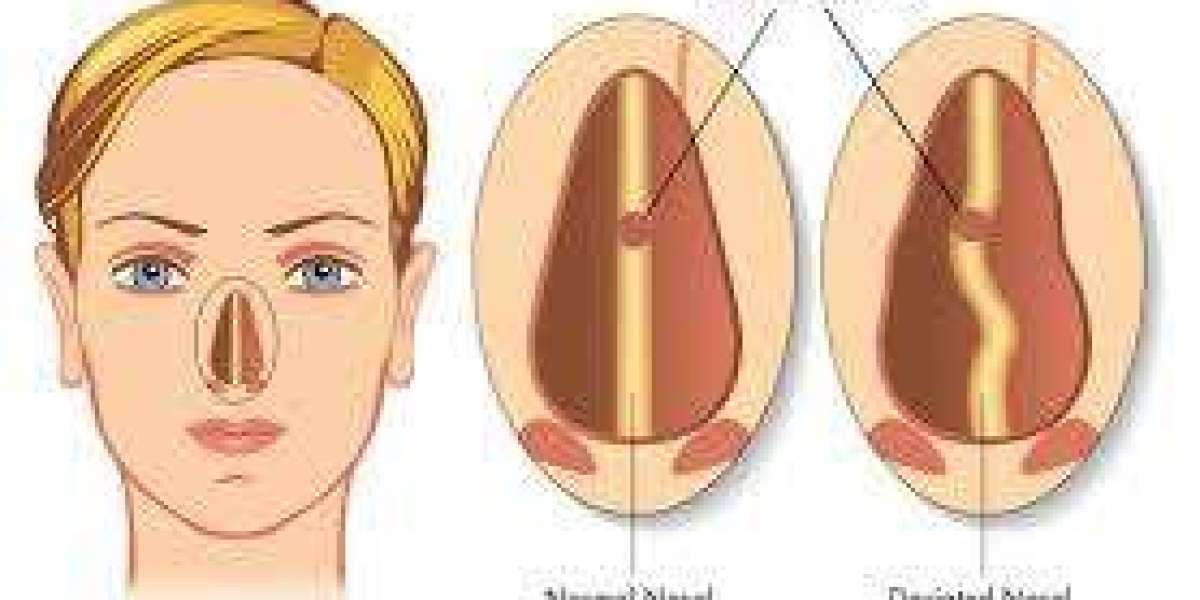Chronic sinus infections can have a significant impact on your quality of life. If you frequently experience nasal congestion, facial pressure, headaches, postnasal drip, or a reduced sense of smell lasting for 12 weeks or longer, you may be dealing with chronic sinusitis. Fortunately, there are a variety of effective treatment options available today that can help you achieve lasting sinus relief. In this blog, we’ll explore the top treatments for chronic sinus infections, including both medical and surgical options, and discuss related conditions such as septal perforation treatment and the emerging role of oral immunotherapy.
Understanding Chronic Sinus Infections
Chronic sinusitis occurs when the sinuses—air-filled spaces in the skull—become inflamed and swollen for an extended period. Unlike acute sinus infections, which typically resolve within a few weeks, chronic sinusitis can persist despite treatment, often due to underlying conditions such as allergies, nasal polyps, deviated septum, or immune system dysfunction.
Common symptoms include:
Nasal congestion or blockage
Thick nasal discharge (yellow or green)
Facial pain or pressure
Postnasal drip
Loss of smell or taste
Cough or throat irritation
Because chronic sinusitis can have many underlying causes, a personalized treatment approach is essential.
Top Treatment Options for Chronic Sinus Infection
1. Saline Nasal Irrigation
One of the simplest and most effective treatments for chronic sinusitis is saline nasal irrigation. Using a neti pot, squeeze bottle, or saline spray, you can flush out mucus, allergens, and irritants from the nasal passages, reducing inflammation and congestion.
Tip: Always use sterile or distilled water for nasal rinsing to avoid introducing bacteria.
2. Nasal Corticosteroids
Nasal corticosteroid sprays, such as fluticasone or mometasone, help reduce inflammation in the nasal passages. These are often a first-line treatment and can shrink swollen tissues, making it easier for the sinuses to drain.
3. Antibiotics
While antibiotics are usually not helpful for chronic sinusitis unless there’s a bacterial infection, your doctor may prescribe a long-term, low-dose antibiotic in some cases, particularly if you have recurrent bacterial infections.
4. Allergy Management and Oral Immunotherapy
Allergies are a major contributor to chronic sinusitis. Treating the underlying allergies can dramatically improve sinus symptoms. Oral antihistamines, decongestants, and allergy nasal sprays are commonly used, but a promising long-term option is oral immunotherapy (OIT).
Oral immunotherapy involves exposing the immune system to small, gradually increasing amounts of an allergen (such as dust mites, pollen, or foods) to build tolerance over time. Though OIT is most commonly used for food allergies, research is ongoing into its application for environmental allergies that can worsen sinusitis. By addressing allergic triggers at the immune system level, OIT offers the potential for long-term sinus relief.
5. Surgery: Endoscopic Sinus Surgery
For people who do not respond to medical treatment, endoscopic sinus surgery may be recommended. This minimally invasive procedure removes blockages, such as nasal polyps or thickened tissue, to restore normal sinus drainage.
6. Septal Perforation Treatment
A septal perforation is a hole in the cartilage wall (nasal septum) that separates the two nostrils. While not always related to sinusitis, it can complicate sinus issues by causing nasal crusting, bleeding, and airflow problems.
Septal perforation treatment depends on the size and symptoms. Small perforations may be managed with saline irrigation, humidification, and nasal ointments. For larger or symptomatic perforations, surgical repair (septal perforation closure) is often required. It’s crucial to address a septal perforation when managing chronic sinus issues because untreated perforations can worsen nasal symptoms and complicate other treatments.
Lifestyle and Home Remedies
In addition to medical treatments, certain lifestyle strategies can improve sinus health:
Humidify your home: Dry air can irritate nasal passages. Use a humidifier, especially during winter.
Avoid irritants: Reduce exposure to cigarette smoke, strong perfumes, and air pollutants.
Stay hydrated: Drinking plenty of fluids helps thin mucus.
Practice good nasal hygiene: Regular saline sprays or rinses can help maintain clear nasal passages.
When to See a Specialist
If you’ve been using over-the-counter treatments without relief, or if symptoms persist despite medical therapy, it’s time to see an ear, nose, and throat (ENT) specialist. An ENT can perform a nasal endoscopy, order imaging studies like a CT scan, and offer advanced treatments such as balloon sinuplasty, immunotherapy, or sinus surgery.
Final Thoughts
Chronic sinus infections can be frustrating and debilitating, but you don’t have to live with them. From simple at-home measures like saline rinses to advanced therapies such as oral immunotherapy and septal perforation treatment, there are many options to help you achieve lasting relief. If you suspect chronic sinusitis, consult a healthcare provider to develop a personalized treatment plan that addresses your specific needs.
By understanding your options and seeking appropriate care, you can finally break free from the cycle of chronic sinus infections and enjoy clearer, healthier sinuses.








